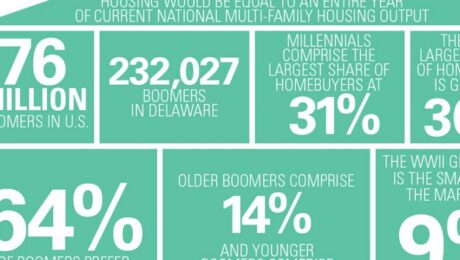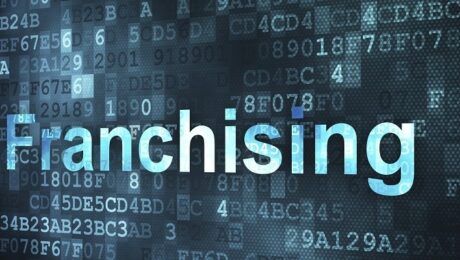The Baby Boomer Generation
Beginning January 1st, 2011 every single day more than 10,000 Baby Boomers will reach the age of 65. That is going to keep happening every single day for the next 19 years.
Baby boomers began joining the world in the year 1946 through the year 1964. These were babies born after their fathers returned from war and they represent a huge demographic group who flourished in the prosperity of the post-war generations.
The benefit of being born in this era is that baby boomer or “boomers” as they were often referred to, typically acquired more education than those of previous generations. On the flip side, in addition to acquiring more education than previous generations, they also developed rebellious and idealistic attitudes that began to reshape society as we now know it.
As this generation begins to reach the age of 60, they are again doing the predictable, they are aging. They are beginning to develop health issues that may require them to retire early or at least slow down in their workplace activities.
In true style, they are creating their own way of doing things. They are non-conformists at the core. As Baby Boomers, they are predicted to live longer than those members of previous generations. Baby boomers include such notable names as Bill Clinton, Donald Trump, George and Laura Bush, Susan Sarandon, Sylvester Stallone, Steven Spielberg and more. With the men in the baby boomer generation averaging at least an addition 22 years and the women an additional 25 years, they are shaping the future for younger generations.
By the year 2030, the first of the boomer generation will begin to reach 84 years of age. At that point in time, there will be 75 percent of Americans who are over the age of 65. This number will equal 69 million persons. At that point, only 20 percent will be over 65 years of age and that is compared to the 13 percent today or more than 35 percent who are over the age of 50. The numbers are staggering.
With all of these people beginning to age, there are some serious questions. How will they be spending these golden years? Will they be healthy? Or, will they be struggling with pain and disabilities? Will they be dealing with chronic diseases and illnesses? There is much hinging on these answers.
Will Baby Boomers Remain Healthy?
Thanks to modern medicine, more people than ever before are reaching their 70th birthday’s and beyond. At present, baby boomers make up 26 percent of the population in the U.S. alone. This fragile and dependent population places a huge demand on Medicare services. It will require support from the professional caregivers and their own families.
This could add to a 75 percent increase in the number of those American’s who are 65 and older and require nursing care. That number is projected to rise to 2.3 million by the year 2030. This is up from the 1.3 million in the year 2010.
In the report, “Aging In The United States”, trends are examined that show the disparities between the adults aged 65 and up. It shows how the boomers are reshaping the older population and by 2015, the boomers have all reached the ages of 52 to 70.
The report goes on to note that the anticipated number of adults aging will double from the 46 million today to over 98 million by the year 2060. These numbers keep rising and will have a huge impact on society.
Modern medicine and technology have ensured longer life spans. They have also improved education levels and put these adults into the workforce for longer periods of time, more so than any previous generation. This bodes well for their economic security as they age.
This also puts this generation at risk for more chronic disease and disabilities. As these generations age, they are at a higher risk for more serious medical conditions.
Thanks to the rise in divorce rates and step or blended families, there will be fewer children from these relationships to care for their aging parents. This puts the burden on caregivers and health care facilities that at times, are ill-equipped to deal with the surge of new patients.
It also places a wider gap in the economic groups of older adults and various ethnicities. At only 8 percent of non-Hispanic whites over the age of 65 living in 2014, more are finding themselves in abject poverty. This is in comparison to previous years. Each ethnicity has a different rate and the numbers are only climbing.
Additionally, more of the elderly are going to require specialized care due to such diseases as Alzheimer’s and dementia. This means that those number could triple by the year 2050 from 14 million or more.
As a result, Social Security and Medicare expenses will increase from the recent statistics of 8 percent of gross domestic product to 12 percent of the gross domestic product by the year 2050.
This creates more challenges via the structural changes to the current entitlement programs. It means they need to raise more for their retirement savings and pay closer attention to their retirement funds.
Many of the lower income households that are headed up by older adults are currently relying on Social Security as a means of supporting themselves. This simply isn’t going to be possible at the rate society is going. They will have to have part time incomes to help fill in the gaps.
As a direct result, this group is also remaining in the workforce longer, in many cases, they will remain active in the workforce until they reach their early 70s. This can help to reduce the rate of poverty among the boomers.
The largest bit of advice that the boomers are giving future generations are to stay in school and go beyond just a high school education. This will ensure a steady income and more quality health care opportunities thanks to insurance and better knowledge of healthcare procedures.
Aging baby boomers are imparting their wisdom on future generations and helping to reshape society by education and their goal of remaining active as long as possible. Future generations will do well to heed their advice.
- Published in Uncategorized
Home Care Business Training
Policies & Procedures
During this time you will discover in depth the required Policies and Procedures that must be in place before starting a home care agency and how to remain in compliance once you have become licensed. Regulations, policies and procedures have to be always checked to keep your business out of troubles. Procedures will help you even for your internal management to keep everything straight in your business. We will walk you through the licensure process, how to complete the licensure application.
In North Carolina for example, an application for the operation of an agency premises shall be submitted to the Department (NC Department Health and Human Services) prior to the scheduling of an initial licensure survey or the issuance of a license. Your agency shall establish, maintain and make available for inspection such documents, records and policies as required and statistical data sufficient to complete the licensure application and upon request of the Department, to submit an annual data report. If the applicant cannot demonstrate to the Division of Health Service Regulation that he or she has ever owned or operated a home care agency prior to submission of the application, the Division shall not issue a license until the applicant has received training approved by the Division which shall include the requirements for licensure, the licensure process, and the rules pertaining to the operation of a home care agency. The Department shall issue a license to each agency premises. Initial and ongoing licensure inspections may include all premises of an agency. Licensure shall be for a period of one year. Each license shall expire at midnight on the expiration date on the license and is renewable upon application. The license shall be posted in a prominent location accessible to public view within the premises. The agency shall also post a sign at the public access door with the agency name. The license shall not be transferable and shall reflect the services provided by the agency, the street address under which the agency operates. Prior to change of ownership or the establishment of a new agency, the agency must be in compliance with all the applicable statutes and rules. The licensee shall notify the Department in writing of any proposed change in ownership or name at least 30 days prior to the effective date of the change.
The Department shall issue a license to each agency premises. Initial and ongoing licensure inspections may include all premises of an agency. Licensure shall be for a period of one year. Each license shall expire at midnight on the expiration date on the license and is renewable upon application. The license shall be posted in a prominent location accessible to public view within the premises. The agency shall also post a sign at the public access door with the agency name. The license shall not be transferable and shall reflect the services provided by the agency, the street address under which the agency operates. Prior to change of ownership or the establishment of a new agency, the agency must be in compliance with all the applicable statutes and rules. The licensee shall notify the Department in writing of any proposed change in ownership or name at least 30 days prior to the effective date of the change.
As for now, a moratorium is on the licenses issuance in the State of North Carolina but you can still provide companionship and sitters.
Assurance of state compliance, Agency management and supervision, personnel, scope of services that you could offer. The location of your agency is crucial to your business. An appropriate location brings professionalism to your business. The caregivers you bring onto your team and the hiring and supervision of the caregivers are key components to the success of your company. These policies and procedures in this course will help you establish your business operational manuals.
You will discover different opportunities to build and create growth for your company in this one day training.
MARKETING OVERVIEW
Yes, you may have not think about that but Sales & Marketing are the cornerstones of any business even in Home Care. In setting up your business, sales & marketing will be the big portion of your budget. You have to invest a lot in time and resources finding your clients. In order to get your name out there to local communities and seniors’ facilities.
This will provide you with a jump start in business, and allow you to gather the best testimonies you can get in the marketplace. With marketing & sales training programs around you, you’ll learn to make strong contacts in your market with the kind of people who will be crucial in ongoing client referrals. With your marketing and advertising, you’ll receive the return on investment for your business. You will have to wisely market your business and advertise in your metro area. You will have to get tools, strategies on your marketing materials and designs, which you can use for to promote your business. Your business is providing solutions to people’s problems they are looking to solve and your marketing materials should address that period. Whatever strategies or tactics you choose among the myriads out there, make sure to be patient and diligent to test them, measure them
Online Leads need to be considered in your budget with a proactive internet marketing. In the information age, prospects rely more and more on the mobile devices. You want your business to be in the traffic so it can be noticed. Your target market in the quest to connect with their children, parents and grandchildren are opened to internet.
In the modern day and age, there is absolutely no doubt that digital marketing is progressing at a pretty impressive pace. No matter how much you try to ignore it, the impact has grown so much that there is no option of going back. This is because digital marketing has defined the norm of how we as the audience behave in all the popular social media platforms. Based on that, it becomes easier for the company to assess our behavior.
In that case, if you are thinking from the point of view of your company, there are so many different factors that you would need to take into consideration. This is because you are wondering if implementing digital marketing in the case of your company would be worth it or not. Also, you are also looking for someone trustworthy and reliable to hire with social proof. However, the thing with digital marketing methods is that it is pretty simple and easy to measure.
With listings on major online properties and advertisements on all major search engines, all generating thousands of leads each month of potential home care clients for you.
You will also invest the time to meet in person and provide guidance to your clients. Attending annual conferences, industry events and seminars, in addition to hosting a variety of regional meetings will be part of your marketing journey. Before investing thousands of dollars, make sure you understand what your target market is. Describe your ideal client’s persona in all the details.
WHY BUILD A HOME CARE AGENCY?
Are you interested in starting your own business by helping the ever-growing senior population in the United States? Are you a sincere and compassionate individual with a knack for helping others? If you answered “Yes” to both these questions, you need to seriously consider starting your own home care agency. Also referred to as “Companion Care,” a home care agency includes tasks such as meal preparation, laundry, shopping, transportation, medical appointments, running errands, and associated activities. The service is not complicated since it is non-medical in nature. But there is a growing need for such services due to the ever-expanding senior population in the country. This article provides information on why build a home care agency.
More than 8,000 citizens of the country are turning 65 years of age every day. The senior population is estimated to reach 72 million by the year 2025. This was revealed in a recent study conducted by the Health and Human Services. On the other hand, more than 90% of the aged population prefer to remain at home for as long as possible. Home care service is much cheaper compared to facility care. In fact, the average annual nursing facility costs between $75,000 to $90,000 while non-medical home care costs between $10,000 to $35,000 annually. Hence, there is a great demand for this type of businesses these days. Needless to say, a non-medical home care service will save money for the seniors and help you make a lot of money in the process. This is why you need to consider building a home care agency without further delay.
With the growing elderly population in the country, home care is a long-term opportunity sitting right in front of your eyes. Why not take advantage of this opportunity right now? Inc Magazine recently ranked non-medical home care as one of the best businesses to start on a shoestring budget. They cite the staying power and profitability as reasons for their ranking. The success rate of a home care agency is in excess of 74% which is well above the national average for other industries. The average home care service will generate more than $1.5 million in annual revenue within 4-5 years of commencing operations.
A medical background or formal training is not needed to start a non-medical home care agency. Strong communication and organizational skills plus an effective business plan are essential to the success of the venture in the long run. Licensure requirements would vary from state to state but it is not that complicated to discourage an individual from setting up the business. Contact your state licensing board for more information on these requirements. Setting up the business is quite similar to setting up most of the other businesses in the country. Remember, attitude is everything when you decide to set-up a non-medical home care agency.
In conclusion, the senior population in the country is on the rise. This is why you need to consider setting up a non-medical home care agency. This article provides information on why build a home care agency.
- Published in Uncategorized
North Carolina Division of Health Services Regulation
We are licensed by the North Carolina Division of Health Services Regulation to train Health Agencies Owners in the industry. In the State of NC, the ownership of an agency is conditioned by a state mandated course that we offer.
This 1 day seminar covers all that you need to know to open a home care agency nationwide.
For any interest on setting up your agency in the state of North Carolina, remember what followed:
- Since January 12, 2017: For Federal providers, the Emergency 1135 Waiver web page has been updated. Center for Medicare and Medicaid Services Central Office is waiting for the All-Hazards FAQs and the updated 1135 Waiver Fee-For-Service documents to be posted at the end of the month.
- Moratorium on Home Care Agency Licenses for In-Home Aide Services (download it here) – The division shall not issue any licenses for home care agencies that intend to offer In-Home Aide Services through June 30, 2019.
The Division of Health Service Regulation oversees medical, mental health and adult care facilities, emergency medical services, and local jails. We check to see that people receiving care in these facilities are safe and receive appropriate care. We make certain that medical buildings are built only when there is a need for them.
- Published in Uncategorized
Franchise Pros & Cons
In today’s fast changing and often volatile economic climate, it’s easy to feel insecure, even if you have a great job. That’s one of the motivating forces behind the growing number of startups all across America.
If you’re like many, you feel the need to build a business of your own, perhaps for reasons of economic security or maybe because you’re simply obsessed with the idea of being your own boss and running your own company.
No matter what’s motivating you, the idea of buying into a franchise has likely crossed your mind. Is this really a viable option for you? Will it meet or exceed all your expectations? Or is this the wrong path for you to venture down altogether?
The Positive Aspects Of Buying A Franchise
There are approximately three-quarters of a million franchise outfits in the United States; an obvious indication that this business model is working for people. There are numerous benefits that may offer strong appeal to your individual circumstances:
Brand Recognition
Brand recognition is the driving force behind most sales, but it’s tough to build a name that people trust and recognize. Customer acquisition costs, for example, are slashed significantly, when the customers are dealing with a recognized brand-name. You automatically inherit the value of the brand as a franchisee.
Available Resources
Setting up any new business is tedious, expensive and time-consuming; however, with a franchise, it’s nearly all done for you, with a strategic plan to get you up and running ASAP.
Experience On Tap
Inexperience is a driving force in closing down a lot of startups all over the world. Despite having endless and exceptional ideas about how to develop or improve products and services, the dream is lost during the execution stage. With a franchise, though, you will have years of experience at your fingertips.
Extensive Training
Both for you and employees, the training offered by a franchise is simply outstanding. Because they want each customer to be greeted, served and satisfied in the same way every time, you and your crew should receive the best possible training. Something that would otherwise cost you a great deal of money, which you probably wouldn’t have as a startup.
An Established Business Model
Buying into a franchise means you don’t have to develop your own business model and thereafter, try to fit it into a particular demographic or geographic customer base. Everything about the business is already cemented in stone, leaving you more time and energy to devote to increasing sales and building a solid reputation.
Lowered Risk
More than a third of all retail revenue in the United States comes from franchising, which is quite impressive. On the other hand, the statistics for independently owned startups is not so optimistic.
The Possible Negatives Of Being A Franchisee
Despite the many success stories, there are potential drawbacks to owning a franchise, be they due to the policies of certain franchise corporations or the simple fact that this type of arrangement may not be optimal for you personally. No matter what, it’s vital that you examine all aspects of this commitment, including the negatives:
- Inflated Sales Figures
Unfortunately, the national sales figures for any given franchise are based on averages; therefore, you have no way of knowing if your business will fall on the low or high end of profitability. Additionally, it’s all too easy for the corporation behind a franchise to pad the numbers, in order to entice new investors.
- Inflexibility
While having a pre-made business does present advantages, it also may stifle you in terms of creativity. Because you are contractually bound to abide by all of the franchise’s policies, you may find yourself frustrated – especially if your sales are sluggish. Not being able to provide your own solutions can be very exhausting and discouraging.
- Restrictions In Advertising And Supply Chain
As a franchisee, you may be obliged to contribute funds to the advertising budget of the entire franchise business, which can significantly cut into your own local efforts. Also, because the franchise base demands consistency in all aspects of operations, you will likely be forced to accept the suppliers of their choice, no matter how expensive or insufficient you may find them to be.
- Royalty And Start-Up Costs
Initially buying into a franchise may require emptying your savings account or risking your retirement. Most franchisees spend a small fortune just to open the doors of their new business, with no guarantee of a return on that investment and no money-back clause in the contract. You’ll also face royalty fees with most franchising opportunities, which are usually a flat percentage of your total monthly or quarterly sales and this can be a major burden, especially when you’re first starting out.
- Sudden Termination Of Franchise Ownership
Because your new business is an extension of someone else’s business, they have the right to terminate your license to operate, basically at their discretion. This can easily leave a franchisee feeling queasy, especially during a sales slump or if they’re otherwise not a shining star for corporate headquarters. Generally, the governing body for franchise operations in the U.S., the Federal Trade Commission, is not quick to offer assistance to franchisees, no matter what the nature of their complaint(s).
Unwelcome Competition
Unfortunately, you could be running a successful franchise in a given area and all of a sudden, someone else is allowed to open an identical business in close proximity to you. The franchise owners, after all, make their money by having as many franchisees as possible; thus, they may not be concerned with somebody new cutting into your hard-earned profits.
- How Do You Decide If Franchising Is Right For You?
The single most important aspect of your decision should be the information you uncover during extensive research of a prospective franchise. How many pros does the company offer that work for you? Are there serious negatives? Contact a prospect prior to making any type of commitment or investment and ask them the hard questions directly. If you are impressed by the answers, make sure that information is clearly spelled out in a written contract, but if you aren’t satisfied with the exchange, continue your search.
There are so many opportunities in franchising that if you do decide the business model is a good fit for you, you should be able to find a suitable partnership. Don’t settle for anything less than total transparency regarding the business arrangement and be sure to run a contract by a qualified attorney before making a financial commitment.
The world of franchising holds many lucrative possibilities, if you enter it with your eyes wide open and a readiness to really work for your success.
- Published in Uncategorized
Home Care vs Home Health Care
While a sizable amount of the American population, and indeed the world’s population, is getting older all at the same time as the post-World War II generation reaches its golden years, the fact remains that they will still have to be cared for. While most of the nation’s senior population are doing all right so far, the fact is many of the senior do need assistance to live independently, without going to an assisted living home. However, some elderly people need more care than others, and sometimes need specific kinds of care to live on their own.
Home care vs. home health care sound similar, and in some ways are, but in many ways are not. Different people will need different forms of care and account for those differences can be very important in planning for a person’s twilight years, be it their own or those of a loved one. Knowing the care needed will likely make a huge impact on the frequency, necessity, difficulty and, of course, cost of any care. That said, both of these forms of care are intended to allow the seniors to live in their homes as long as possible without needing near-constant care at an assisted living facility.
Home care is a fairly simple affair that requires few qualifications. Mostly it involves assisting an elderly person who is mostly capable of taking care of themselves in the day to day matters but finds that some tasks are too difficult to handle on their own in old age. This may be as simple as cooking and cleaning a home, but it can get far more complicated if the elderly person has an illness or injury, ranging from a broken leg to dementia. Home caregivers will have to account for these problems to do their jobs right. Additionally, ensuring that the seniors under their care are safe is a vital element of the field.
Home health care is a more complicated and often a frightening affair. With home health care, a person who needs regular near-constant medical attention is regularly visited by a qualified health care professional, usually a qualified nurse to provide the kind of regular care that would normally be impossible outside of a hospital. However, these services can get quite expensive as hospital level care does not come cheap even in places where it is readily available, let alone after all the difficulties of delivering it directly to the patient’s home. Still, for those who can afford it, home health care that allows the seniors to avoid a long term stay at the hospital is worth every penny.
Both home care and home health care can be essential for the psychological well-being of the elderly person receiving it, as assisted living homes and hospitals can be a strain on any person. Arranging for this kind of care can be important for the elderly and their families who wish to ensure their loved ones are tended to in their old age.
- Published in Uncategorized
Start A Business
Are you toying with the idea of starting your own business? The idea can be very tempting, especially if you’re sitting in your car in traffic and wondering if you’ll make it home in time for your daughter’s ballet performance. Taking the first step can be scary but exhilarating, but once you’ve stepped off the cliff, you need to focus on making your vision of your own business a reality. There are many elements and moving parts to consider. It helps to have an outline to follow, so take a look at the following ten basic steps that are necessary to starting your own successful business.
To begin, you need an idea. All businesses started with someone’s idea. Perhaps you’ve dreamed of selling your Mom’s toffee or painting every house in your neighborhood. Whatever it is, your business idea will be the foundation of your business.
Once you’ve got your idea, the next step is to create a solid business plan. This can seem like a chore, but it is critical to your success. The business plan doesn’t need to be anything formal and certainly doesn’t have to be long, but it should cover some basics. There should be an overview of the business, some background on the industry, the service or product, the business model, and the strategy for making it all come together.
It is important to do some basic research to see if your idea can get traction with potential customers. Your research should determine if there is a need for your service or product. If so, who is your customer and who are your competitors? Where do you see your business fitting in the market?
The answers to these questions can help you write your business plan. Once your plan is written, then run it by other business owners and a few lenders, if possible. Ask them for feedback and where you need to strengthen or improve the plan.
Once your business plan is finalized, you need to determine how you will finance your start-up costs. There are several options for funding your business. These include personal savings or help from family or friends, small business grants, small business loans, and investors. No matter what funding strategy you choose, try and keep any debt to a minimum.
You will also need to choose a business structure, register your business name and obtain any necessary licenses or permits. A business attorney can be helpful during this process to ensure you don’t’ miss anything important.
You will also need to choose a location. Of course, the easiest choice is to work from home, at least in the beginning. This also helps keep overhead costs low. You will also need to consider equipment, the internet and phone service requirements. It is also important to choose a good accounting system.
Once you’ve got all of the above in place, you are ready to promote your business. Create a unique selling proposition and use this to develop your marketing plan. This may include your web presence, memberships in local professional organizations and marketing materials.
Starting your own business can be one of the most exciting and frustrating things you’ll ever do. Follow these steps as your prepare to open your business and you’ll be on your way to success.
- Published in Uncategorized






